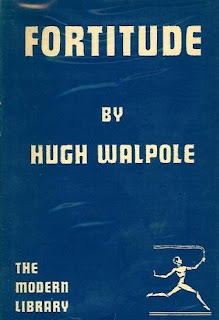Lamoreux fleshes out the five characters only briefly mentioned in Stoker’s original book, and creates an original character of his own with a clever twist. And although it is a bit hard to tell who’s who in the first third of the book, by the second half, as events speed up and the violence escalates, the characters come into their own, especially the Scottish cook, and the English stowaway. Lamoreux’s version of Dracula himself is also notable, as this Count is no romantic figure. Lamoreux takes Dracula back to his original form, depicting him as a powerful, vicious, disgusting, brutally violent monster with no redeeming qualities whatsoever.
What stops the novel from becoming a horror classic is Lamoreux’s almost sole focus on storytelling. This is the kind of book that is almost all story, without enough emphasis on character. While the cast is likable enough, aside from the previously mentioned cook and stowaway, none of the characters really shine. Also, the book’s tone is slightly inconsistent, with the first two thirds playing out like a violent Gothic horror story, with graphic violence and a somewhat playful tone; while the last third of the story takes a darker, grimmer aspect. And Lamoreux’s choice of eschewing the epistolary format of the original novel, disconnects it stylistically from its source material, to a large degree.
But faults aside, Dracula’s Demeter is a fun, richly textured, Gothic horror novel, and is a must for fans of Stoker’s classic tale.
Video version:
Text © Ahmed Khalifa. 2021.
Ahmed Khalifa is a filmmaker and novelist. He is the writer/director of several short films and a feature, which was released on Netflix, and the author of a number of novels and short stories, including the YA horror novel, Beware The Stranger, available on Amazon. Find him on Twitter @AFKhalifa and on Facebook @Dark.Fantastic.AK·Writer





























